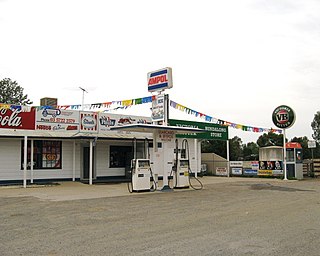Judgment
Lord Lindley MR held the alteration of the company's articles was valid to introduce a lien on fully paid up shares. So long as the resolution was done bona fide for the benefit of the company as a whole, restrictions on freedom of a company to alter its articles are invalid. According to Lord Lindley MR the power to change the articles is,
like all other powers [to] be exercised to those general principles of law and equity which are applicable to all powers conferred on majorities and enabling them to bind minorities. It must be exercised, not only in the manner required by law, but also bona fide for the benefit of the company as a whole, and it must not be exceeded. These conditions are always implied, and are seldom, if ever, expressed...
How shares shall be transferred, and whether the company shall have any lien on them, are clearly matters of regulation properly prescribed by a company’s articles of association...
It is easy to imagine cases in which even a member of a company may acquire by contract or otherwise special rights against the company, which exclude him from the operation of a subsequently altered article...
The altered articles applied to all holders of fully paid shares, and made no distinction between them. The directors cannot be charged with bad faith.
Romer LJ agreed. Vaughan Williams LJ dissented.

Salomon v A Salomon & Co Ltd[1896] UKHL 1, [1897] AC 22 is a landmark UK company law case. The effect of the House of Lords' unanimous ruling was to uphold firmly the doctrine of corporate personality, as set out in the Companies Act 1862, so that creditors of an insolvent company could not sue the company's shareholders for payment of outstanding debts.

Airservices Australia v Canadian Airlines International Ltd (1999) 202 CLR 133 is a High Court of Australia case that affirms previous High Court definitions of a tax.

Hutton v West Cork Railway Co (1883) 23 Ch D 654 is a UK company law case, which concerns the limits of a director's discretion to spend company funds for the benefit of non-shareholders. It was decided in relation to employees in the context of a company's insolvency proceedings.

The United Kingdom company law regulates corporations formed under the Companies Act 2006. Also governed by the Insolvency Act 1986, the UK Corporate Governance Code, European Union Directives and court cases, the company is the primary legal vehicle to organise and run business. Tracing their modern history to the late Industrial Revolution, public companies now employ more people and generate more of wealth in the United Kingdom economy than any other form of organisation. The United Kingdom was the first country to draft modern corporation statutes, where through a simple registration procedure any investors could incorporate, limit liability to their commercial creditors in the event of business insolvency, and where management was delegated to a centralised board of directors. An influential model within Europe, the Commonwealth and as an international standard setter, UK law has always given people broad freedom to design the internal company rules, so long as the mandatory minimum rights of investors under its legislation are complied with.

Greenhalgh v Arderne Cinemas Ltd [1946] 1 All ER 512; [1951] Ch 286 is UK company law case concerning the issue of shares, and "fraud on the minority", as an exception to the rule in Foss v Harbottle.
Directors' duties are a series of statutory, common law and equitable obligations owed primarily by members of the board of directors to the corporation that employs them. It is a central part of corporate law and corporate governance. Directors' duties are analogous to duties owed by trustees to beneficiaries, and by agents to principals.

Ebrahimi v Westbourne Galleries Ltd [1973] AC 360 is a United Kingdom company law case on the rights of minority shareholders. The case was decided in the House of Lords.

Sidebottom v Kershaw, Leese & Co Ltd [1920] 1 Ch 154 is a UK company law case, concerning the alteration of a company's constitution, and the rights of a minority shareholder.
Brown v British Abrasive Wheel Co [1919] 1 Ch 290 is a UK company law case, concerning the validity of an alteration to a company's constitution, which adversely affect the interests of one of the shareholders.
Dafen Tinplate Co Ltd v Llanelly Steel Co (1907) Ltd [1920] 2 Ch 124 is a UK company law case concerning amendment of the articles of association.
Shuttleworth v Cox Bros and Co (Maidenhead) [1927] 1 Ch 154 is a UK company law case, concerning alteration of a company's constitution.

Pender v Lushington (1877) 6 Ch D 70 is a leading case in UK company law, which confirms that a company member's right to vote may not be interfered with, because it is a right of property. Furthermore, any interference leads to a personal right of a member to sue in his own name to enforce his right. As Lord Jessel MR put it, a member:
has a right to say, "Whether I vote in the majority or minority, you shall record my vote, as that is a right of property belonging to my interest in this company, and if you refuse to record my vote I will institute legal proceedings against you to compel you."

Howard Smith Ltd v Ampol Petroleum Ltd[1974] UKPC 3 is a leading company law case, concerning the duty of directors to act only for "proper purposes". This duty has been codified into the Companies Act 2006 section 171, and arises particularly in cases involving takeover bids.

Re Smith and Fawcett Ltd. [1942] Ch 304 is a UK company law case, concerning the meaning of "the interests of the company". It is relevant for the provisions of company law now embodied in Companies Act 2006, section 172.
Corporate litigation in the United Kingdom is that part of UK company law which gives investors the right to sue the directors of a company, or vindicate another wrong to the company, particularly where the board of directors does not wish to act itself.
Borland's Trustee v Steel Brothers & Co Ltd [1901] 1 Ch 279 is a UK company law case, concerning the enforceability of a company's constitution and the nature of a company share. It is also one of the rare exceptions to the rule that a transfer of assets which only takes effect upon a person's bankruptcy is normally void.

In re Wragg Ltd [1897] 1 Ch 796 is a UK company law case, also relevant for English contract law, concerning shares, and the rule that shares should be exchanged for consideration that is in some sense at least sufficient, not necessarily adequate.

Re Rica Gold Washing Co (1879) 11 Ch D 36 is a UK insolvency law case concerning the liquidation when a company is unable to repay its debts. It held that a shareholder, to having standing to bring a winding up petition must have a sufficient tangible interest in what is left over after winding up.

Citco Banking Corporation NV v Pusser's Ltd[2007] UKPC 13 is a judicial decision of the Privy Council on appeal from the British Virgin Islands in relation to the validity of amendments to the memorandum and articles of association of a company, and the requirement of shareholders to exercise the votes attached to their shares in the best interests of the company as a whole.

Ciban Management Corporation v Citco (BVI) Ltd[2020] UKPC 21 is a decision of the Judicial Committee of the Privy Council on appeal from the British Virgin Islands relating to directors' duties and the legal rule known as the Duomatic principle.
This page is based on this
Wikipedia article Text is available under the
CC BY-SA 4.0 license; additional terms may apply.
Images, videos and audio are available under their respective licenses.












